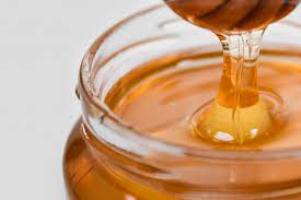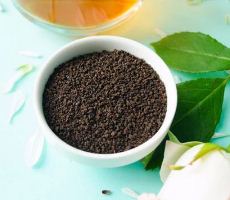All the ways honey can make your healthier, how to select the best kind, and creative ways to add honey to meals, drinks, and snacks.

Honey made headlines recently with news that it’s superior to the usual remedies at improving upper respiratory tract infection symptoms (more on this below). But this isn’t the first time honey has generated some serious buzz—no pun intended. Often referred to as liquid gold, several studies have demonstrated that honey possesses major health benefits.
That’s exciting, since honey is an all-natural, readily available, relatively affordable option for most households. Here’s a look at the research on the health-protective powers of honey, how to shop for the best varieties, and ways to incorporate this
sweetener into meals, snacks, and drinks.
Honey may help treat upper respiratory tract infections (URI)
In a new paper in the journal BMJ Evidence-Based Medicine, Oxford University researchers looked at 14 previously published studies related to the effectiveness of honey for the relief of URI symptoms. They found that compared to usual treatments (like over-the-counter meds and antibiotics), honey improved both cough frequency and severity, it and may serve as an inexpensive alternative to antibiotics.
The study’s authors conclude that further controlled trials are needed. But the analysis was prompted by concern over antimicrobial resistance, which is linked in part to overprescribing antibiotics for URIs. The Centers for Disease Control and Prevention has named antibiotic resistance one of the world’s most pressing public health concerns, and another 2017 study found that honey may hold the key. University of Illinois at Chicago scientists discovered that an antimicrobial compound made by honeybees could become the basis for new antibiotics.
Honey may help fight metabolic syndrome
A 2018 paper published in the journal Nutrients reviewed the protective effects of honey for metabolic syndrome (MetS), a cluster of specific risk factors found in a third of US adults. To be diagnosed with MetS, you must have at least three of five conditions : a large waistline (over 35 inches for women and over 40 inches for men) ; high blood pressure ; a high level of harmful triglycerides in the blood ; low "good" HDL cholesterol ; and high blood sugar.
In the paper, researchers lay out reasons why honey may help improve these conditions. First, honey has a low glycemic index, so it doesn’t trigger a spike in blood sugar and insulin levels, and it helps enhance insulin sensitivity. Honey has also been shown to prevent excessive weight gain and improve lipid metabolism by reducing triglycerides as well as total cholesterol and “bad” LDL cholesterol, while increasing “good” HDL.
Honey’s antioxidative properties also help to reduce oxidative stress, one of the central mechanisms in MetS. In a nutshell, oxidative stress is an imbalance between the production of cell-damaging free radicals and the body’s ability to counter their harmful effects. For these reasons, researchers conclude that there is strong potential for honey to be integrated into the management of MetS, both preventatively and therapeutically.
Honey may help prevent artery hardening
Another recent paper about honey’s benefits explores its ability to combat artery hardening, a leading cause of death worldwide. Published in 2019, also in the journal Nutrients, the authors point out that honey contains over 180 substances—including natural sugars as well as a plethora of vitamins, minerals, and phytochemicals. Researchers conclude that the antioxidant and anti-inflammatory compounds in honey, in addition to its ability to counter oxidative stress, are the key factors responsible for its protective benefits.
Older research shows that consuming high antioxidant honey indeed raises blood antioxidant levels, and that replacing processed sugar with honey may help boost antioxidant defenses in healthy adults.
Honey may help support a healthy gut
A recent review of honey’s use in complimentary medicine, published in the journal Integrative Medicine Insights, states that honey possesses prebiotic properties. Prebiotics help to ferment beneficial bacteria in the gut, including bifidobacteria and lactobacilli. This shift has been linked to stronger immune function and enhanced mental well-being. The researchers also note honey’s anti-viral activity.
Honey provides nutrients
In addition to its natural sugar and antioxidants, honey contains some nutrients. For example, while the amounts are small per serving, 31 minerals have been found in honey—including all of the major minerals, such as phosphorus, calcium, potassium, and magnesium. Honey also contains approximately 600 volatile compounds that are thought to contribute to its potential biomedical effects.
In short, honey won’t supply large percentages of nutrients in your diet, but it’s certainly not empty calories ; and researchers are still learning about the functional benefits of its complex makeup.
 MULTISECTOR INVESTMENT GROUP
MULTISECTOR INVESTMENT GROUP











